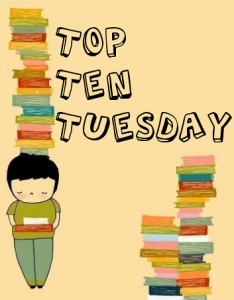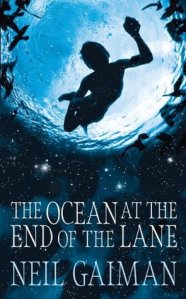Fragile Things
18 February 2016 3 Comments
Author: Neil Gaiman
Summary: Let me tell you stories of the months of the year, of ghosts and heartache, of dread and desire. Of after-hours drinking and unanswered phones, of good deeds and bad days, of trusting wolves and how to talk to girls.
There are stories within stories, whispered in the quiet of the night, shouted above the roar of the day, and played out between lovers and enemies, strangers and friends. But all, all are fragile things, made of just 26 letters arranged and rearranged to form tales and imaginings which will dazzle your senses, haunt your imagination and move you to the very depths of your soul.
Rating: ★★☆☆☆ 2.5/5
Review: I love short stories. I mean i really love short stories. So i’m not giving this book two stars lightly. But this books took me over a month to read; i wasn’t excited to pick it up to carry on reading. It just… wasn’t that good. It wasn’t all bad, either, though.
I really loved Other People, it was by far and away the best story in the book. It immediately started with a hook and ended with a twist that made the entire story make sense. That is the perfect kind of short story to me. It packed so much into barely 5 pages of words.
Another notably enjoyable story was Keepsakes and Treasures, because the characters and the back story were so developed–i would love to read more about Mr Smith and Mr Alice. Harlequin Valentine was interesting, another story with a twist. I thought the idea behind How to Talk to Girls at Parties was brilliant, but was uninspired by the execution. And of course, having read and loved American Gods, i really enjoyed The Monarch of the Glen.
But. But to be honest, most of the other stories were mediocre, or half-hearted, or slightly interesting but not developed enough. October in the Chair, for example. I liked both the idea of the months of the year as characters–the relationships and banter there–and the tale of the two boys, one alive and one dead. What i didn’t like were those two ideas in the same story. They detracted from each other, for me. Either focus on why the months of the year are telling stories around the fire and what their meeting is really about, of focus on the boys and their relationship and the meaning there. Don’t throw in as much weird shit as you can and call it entertaining–it has to mean something, too.
Honestly, i just don’t think short stories are Gaiman’s forte. Short stories are a different beast. As Stephen King aptly put it:
A short story is a different thing all together – a short story is like a kiss in the dark from a stranger.
I did not enjoy these kisses; too much tongue, not enough pressure. Short stories have to punch a lot harder in a lot fewer words, and i think Gaiman shines more in novels. I absolutely adored American Gods, and enjoyed The Ocean at the End of the Lane. But i have to say i’ll likely avoid his short story collections in the future. Which is a very sad, telling thing for a lover of short stories to say.


 Wanting more from a book, a book that leaves the reader craving more, is a sign of a great book for me. And for me that will most often come in the form of characters. Characters make or break books as far as i’m concerned, and characters that I love or hate and want more of, will always make a book. These are some of the most intriguing characters i’d love to read more about in some capacity.
Wanting more from a book, a book that leaves the reader craving more, is a sign of a great book for me. And for me that will most often come in the form of characters. Characters make or break books as far as i’m concerned, and characters that I love or hate and want more of, will always make a book. These are some of the most intriguing characters i’d love to read more about in some capacity.















